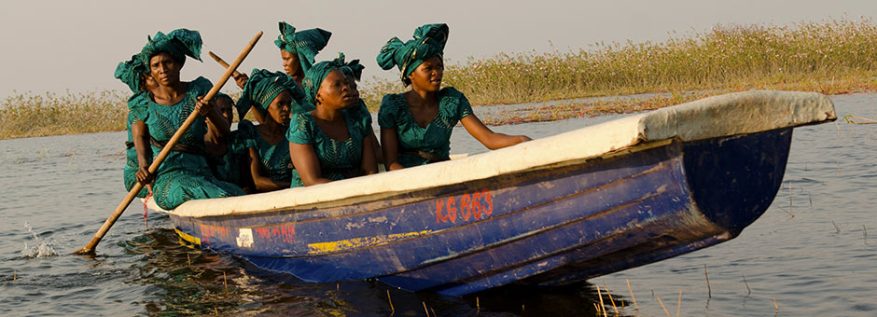“We knew we wanted to do something to improve our lives. We just didn’t know what we could do.”
Agnes Ngosa sits in the shade of a banyan tree in Buyantashi village, on the shores of Lake Kariba in southern Zambia. “None of us farm here – the men fish, and the women sell the fish or maybe some small snacks – that’s it. Life is tough.”
The women of the village decided the first step out of poverty lay in pooling their meagre resources and Agnes, a 32-year-old mother of three, was chosen as chairwoman of the group. “We were 14 in total, all women, and we started paying about $1 a week each into the group, which was all we could really afford. And out of that, out of our organisation, eventually came the fish farming idea.”
Lake Kariba is the world’s largest artificial lake, sitting on border between Zambia and Zimbabwe. Fish stocks have dwindled in recent years, and families who rely on the lake for survival find it increasingly difficult to make ends meet. “There is commercial fish farming on the lake,” said Agnes, “and we asked why we couldn’t do the same thing. We would be smaller, but we know how to trade fish.”
Helped by a local non-profit organisation, the women’s group contacted Self Help Africa, asking for help to realise their dream. They needed training and access to capital. Twelve months later, they are about to harvest their first fish. “We had 9,000 fish fingerlings starting off, placed in two fish cages, and think we have about 7,500 fish now grown to nearly full size,” says Agnes. “In total, we think the harvest will sell for around $7,000 and, after costs, we hope to realise about $400 each in profits.
For families living in poverty, a $400 pay-off is enormous, but Agnes says the group won’t “cash-in” after harvest. “We have spoken about it and we are agreed. We will take a small payment, but we want to buy another fish cage or perhaps two. We want to invest in our business. We can build this – two harvests per cage each year, and many more cages.”
The women of Buyantashi village are also thinking outside their community. “If another village group comes to us, as we came to Self Help Africa, seeking our advice and support to set up a fish farm, we will help them. We agreed this from the start.”


